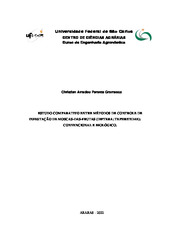Estudo comparativo entre métodos de controle de infestação de moscas-das-frutas (Diptera: Tephritidae): convencional e biológico
Abstract
Fruit flies (Diptera: Tephritidae) are among the most economically important pests in fruit production worldwide because they attack plant reproduction organs, fruits with pulps and flowers, causing high losses to fruit growers worldwide, with annual losses of approximately one billion dollar. In Brazil, the main form of control is the frequent use of spraying organosynthetic insecticides. Although relatively efficient, it is a costly method for the producer. In addition, the awareness of the risks of intoxication and environmental contamination that these products can cause, as well as the change in the consumer profile, which increasingly demands food free from pesticide residues, has driven research into the search for ecological methods of pest control, especially biological control. Thus, this literature review aimed to gather information about different control methods for fruit pests and make a comparison between conventional and biological control in order to demonstrate new viable alternatives for controlling this pest. From the studies cited in this work, it is possible to conclude that biological control alone is not sufficient to keep fruit fly infestation as low as necessary. Incentives are then recommended for the adoption of integrated pest management, mixing different types of control. This adoption will benefit both producers and the economy, environment and society.
Collections
The following license files are associated with this item:

